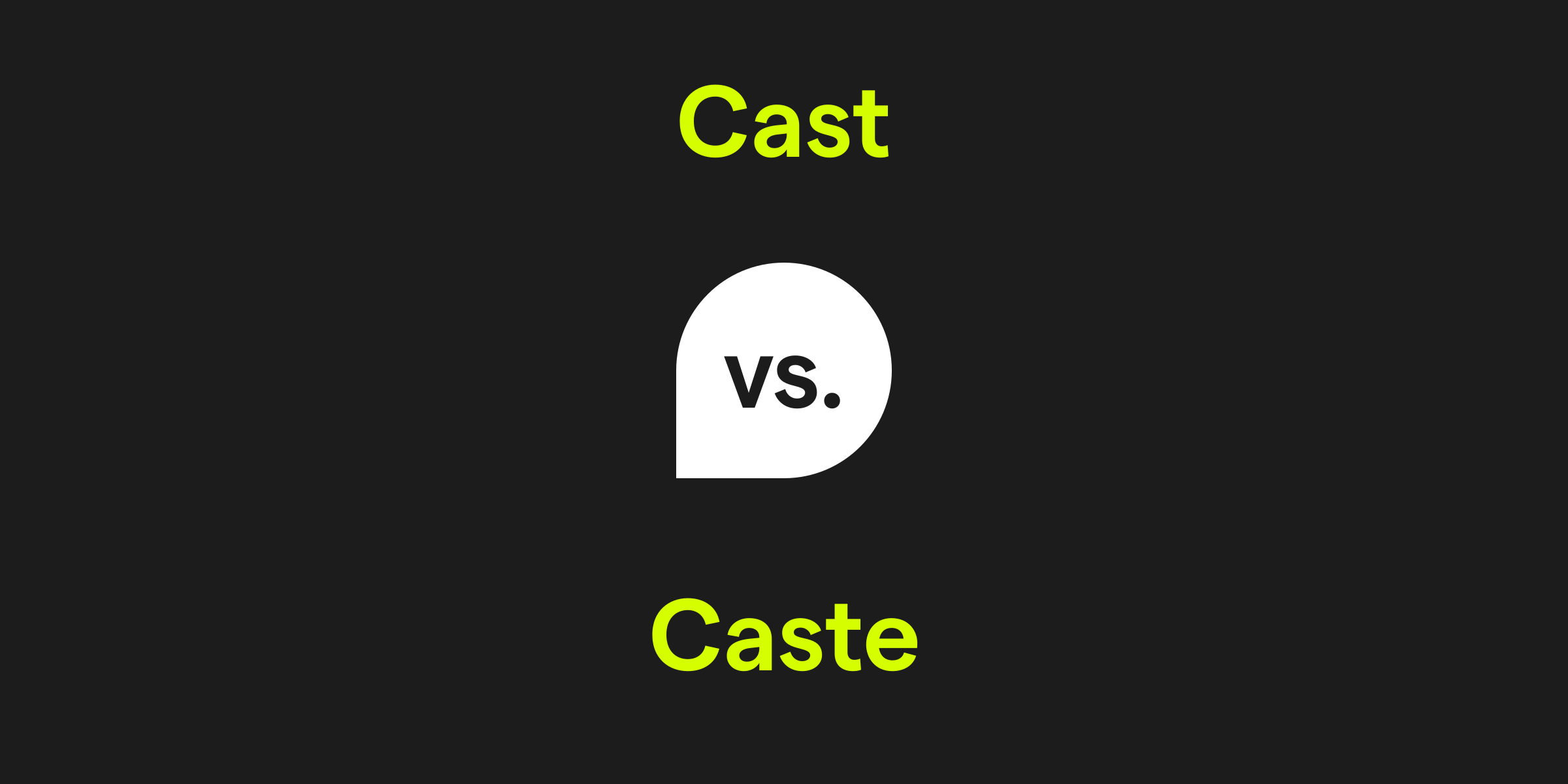Cast vs. Caste: What's the Difference?
The words cast and caste may sound similar, but they hold distinct meanings. Cast is a term with various meanings including the act of throwing something, the shape formed by pouring a liquid into a mold, or the selection of actors for a play or film. Caste, on the other hand, refers to a traditional social system found in some countries, where societies are divided into hereditary classes with distinct privileges or restrictions.

How do you use the word cast in a sentence?
The word cast is versatile and can be used to describe an array of actions or objects, depending on the context. It can denote the act of throwing something forcefully, shaping material into a form by pouring it into a mold, or the selecting and assigning of roles to performers in a film, play, or other production.
Examples of cast in a sentence
- She cast the fishing line into the shimmering lake.
- The artisan cast the bronze sculpture with exquisite detail.
- The director announced the cast for the upcoming stage production.
How do you use the word caste in a sentence?
Caste is typically used in a sociological context referring to the hierarchical divisions in certain societies. It relates to a social structure where people are grouped into specific hereditary classes, often associated with certain cultural, occupational, and economic characteristics. When discussing systems of social stratification or historical class structures, caste is the appropriate term.
Examples of caste in a sentence
- Her research on the Indian caste system revealed a complex social hierarchy.
- In that culture, marrying out of one's caste was strongly discouraged.
- Caste played a pivotal role in the traditional social order of the region.
Cast and caste definition, parts of speech, and pronunciation
Cast definition:
The word cast refers to the act of throwing or directing something in a specific direction, casting metal or other materials into a particular shape, or the selection of actors for roles in a play, movie, or other performance.
Cast parts of speech:
Cast pronunciation:
The word cast is pronounced as /kæst/.
Caste definition:
The word caste denotes the social stratification into hierarchical groups based on heredity, profession, or social status, particularly in societies where such distinctions influence one's entire lifestyle, status, and opportunities.
Caste parts of speech:
Caste pronunciation:
The word caste is pronounced as /kæst/.
The word cast refers to the act of throwing or directing something in a specific direction, casting metal or other materials into a particular shape, or the selection of actors for roles in a play, movie, or other performance.
Cast parts of speech:
- As a verb: He will cast the first stone.
- As a noun: The entire cast received a standing ovation.
Cast pronunciation:
The word cast is pronounced as /kæst/.
Caste definition:
The word caste denotes the social stratification into hierarchical groups based on heredity, profession, or social status, particularly in societies where such distinctions influence one's entire lifestyle, status, and opportunities.
Caste parts of speech:
- As a noun: They belong to the warrior caste.
- There are no other common parts of speech for the word caste.
Caste pronunciation:
The word caste is pronounced as /kæst/.
Cast vs. caste in a nutshell
While cast and caste are homophones, they carry very different meanings. Cast can be a verb or a noun, associated with throwing, shaping an object, or selecting performers. Caste is a noun strictly linked to social hierarchy and class divisions with profound implications on societal interactions. Understanding these distinctions is crucial when discussing cultural practices, historical contexts, or theatrical productions.
Get AI Writing Assistance Wherever You Type
Make sure your vocabulary is on point and every punctuation mark is in the right place, no matter where you’re working. Grammarly works across more than 1 million websites and apps so you can improve your writing without copying, pasting, or breaking focus.

More Commonly Confused Words
Interest piqued? Pore (not pour) over other commonly confused words to help your writing reach peak (not peek) performance.